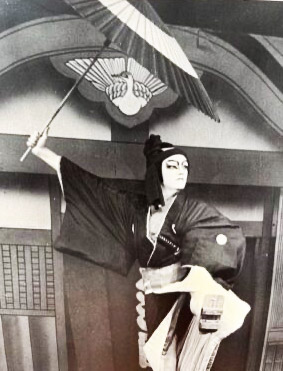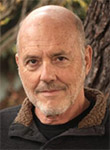Here’s a story I never told anyone — Richard Wiley (Korea)
Raw Potato Bridge
by Richard Wiley (Korea 1967-69)
Here’s a story I never told anyone.
One evening in August of 1967 I was walking to our Peace Corps training’s makeshift bar with my roommate, Tom, when he asked me in the kind of shaky voice that signaled deep naiveté back then, “Look, don’t laugh, but do you have to be circumcised to have sex with Jewish girls?”
We were strolling along with our hands in our pockets, both our brows furrowed.
“I don’t think so,” I said, but did Tom have a particular girl in mind? Someone in our group? I tried to think, but I hardly knew who was Jewish and who wasn’t, and Tom had never mentioned anyone.
Tom was from Birmingham, Alabama. He was big (6’2”, 270 pounds), and he’d lost his father to a fire his father started himself, in an alcoholic stupor, in, of all horrible places, his living room easy chair.
Tom went to college at Baylor, was a Southern Baptist, and had recently been a hit in a Shakespeare production that a fellow trainee (thanks, Larry Stern) had put together for our entertainment, and, I dare say, edification. Tom played Falstaff, in whose persona his Alabama accent was, well, let us say, subsumed.
Okay, fast forward to 1972. Peace Corps was over, and though I didn’t see Tom much during our time in Korea, we both ended up teaching English in a small school in Tokyo, and we were once again roommates. Tom had dropped seventy pounds in the interim, was as lithe as anyone who ever played Falstaff, but still maintained that “sack of potatoes” look of many once-fat people.
Also in that interim, he’d switched the artistic star he hitched his wagon to from theater to dance, specifically to traditional Japanese odori. His sensei, of the famous Fujima school, held the honorific name of “Kanjuro”, so Tom, out of his sensei’s hearing, of course, took to calling him Kangaroo.
Now, we had another Peace Corps Korea friend who’d also moved to Japan, named Lou. Lou didn’t live in Tokyo, so he stayed with us whenever he came to town, which, alas, was nearly every weekend. Lou was gay, loved Shinjuku’s gay bars, and often asked us to go with him as his “wingmen,” so to speak. We did that sometimes, and it was fun.
Then one day when Tom and I were on a train, headed for an event in a nearby town, he said, in much the same shaky voice he had used to ask his ‘circumcised’ question, “I’m sorry for refusing, lately, when you wanted to go out drinking. I know it’s been bothering you, but I have to tell you something . . . I’m gay.”
Big change in half a decade.
The truth was, I had been somewhat bothered. I liked going drinking, though it wasn’t the Shinjuku bars that drew me, just the yakitori joint down the street, where I could practice my Japanese. I haven’t said yet that Tom and I looked alike, but we did, to the Japanese eye, at least, so it was fun to go in there and say we were brothers, which indeed, we were: one gay, one straight.
A few months passed. Tom was a far bigger hit in the gay community than Lou, a thing that bothered Lou, though he never would admit it. And then, just before our time as roommates came to an end (Tom was moving in with a Shinjuku bartender, me into an old pre-war house I had rented) Tom said he’d invited “Kangaroo” over to our house for a home-cooked, southern fried chicken, dinner. Tom was a great cook, and he very much wanted to impress the famous man. He worked for days getting everything ready: fried chicken, grits and homemade french fries, a freshly baked apple pie for dessert. He asked me to help serve the meal and to “chat up” Kangaroo and his wife.
When his guests arrived on the appointed day I did my best to entertain them, telling stories about Tom (not the circumcision thing), and carrying on about his cooking prowess. My Japanese held up and I felt that they, as well as Tom, who was running in and out of our kitchen, were pleased.
The meal was perfect . . . the chicken sublime. Everyone ate three pieces.
After our pie, Tom brought out freshly brewed coffee, with whole milk in a beautiful blue-fluted creamer he bought for the occasion at Takashimaya department store, in Ginza. We all smiled, as full and happy as ticks, while Tom poured the coffee.
When Kangaroo’s wife said she’d like some milk in hers, Tom poured that, too.
Now here’s the kicker. What should come sliding out of that blue-fluted creamer, but a single, raw, three inch long wedge of potato. How it got there was anyone’s guess, but one end of it landed in Kangaroo’s wife’s cup, while the other end stayed in the creamer.
We were all stunned, and then three of us laughed at Tom’s increasing, gulping, speechless mortification.
Even after all these years, however, I think of that potato as a bridge between Tom as a Baptist kid living in Birmingham, and as a gay man and dance aficionado living in Tokyo. I think of it as a bridge that he crossed with dignity, grace, and aplomb.
A few months after we parted ways, Tom had a recital at Kabuki-za, a famous  theater in downtown Tokyo.
theater in downtown Tokyo.
Here’s a photograph of him from that recital.
Tom Nunnelley died of complications from AIDS, in Birmingham, on February 9, 1992, just a few days past his forty-sixth birthday. When I called his mother shortly after this death, she said, “We had Tommy with us for three weeks,” so maybe she got to spend his birthday with him.
Our friend, Lou Inturrisi, I am horrified to say, was bludgeoned to death in his apartment in Rome, Italy, in 1997. Authorities believed him to be the victim of a serial killer of gay men. Lou was 54.
•
Richard Wiley (Korea 1967-69) is the author of ten works of fiction. His first novel, Soldiers in Hiding, won the PEN/Faulkner Award in 1987. He has also won The Maria Thomas Award, and the Washington State Governor’s Award. His most recent novel is The Grievers’ Group. He is an emeritus professor of English at UNLV and currently resides in Los Angeles.

A poignant and sad ending to a joyful story of lasting friendship. It would be wonderful to hear more.
Thank you, Cynthia,
I’m writing weekly 1000 word essays on Substack. Under Notes From a Decrepit Boat Ramp.
Nothing much more about Tom or Lou on there, but lots of interesting stories, I hope.
Best,
Richard Wiley